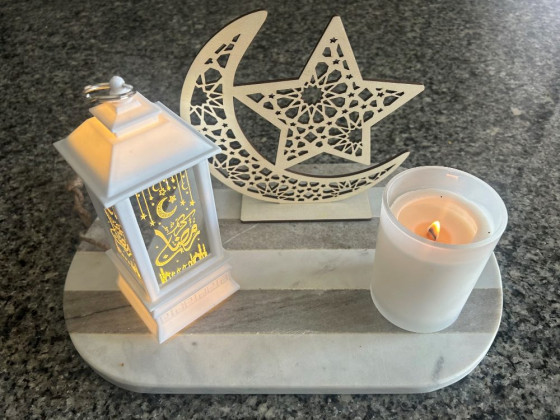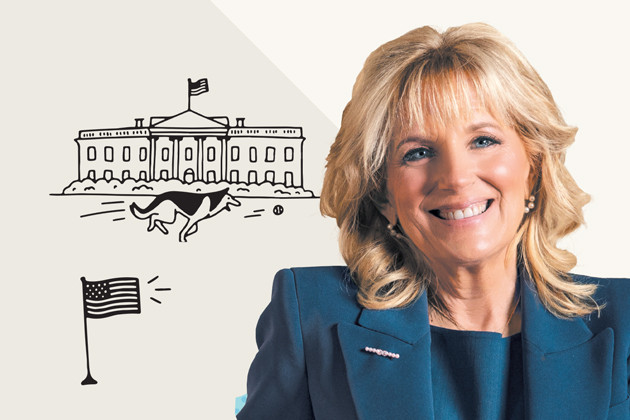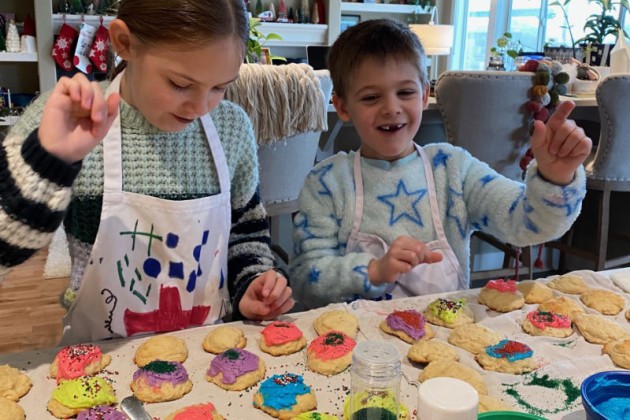How Do You Celebrate Ramadan?

In our "How Do We Celebrate" series, we share the unique and special traditions of all families, particularly with regards to spirituality and religion, but also other traditions that connect to meaning. We want to practice the "mirrors and windows" approach: We hope a family that observes Ramadan will "see" themselves in our "mirror" and we also hope a family that wants to learn more about it will be able to do so through our "window."
In the Quran, Allah (God) says, ‘Oh believers, fasting during Ramadan is sent down for you as it was sent down for those before you, so perhaps you will become mindful (of Him).’ Every time I read this verse, I am reminded about the imperative nature of instilling God-consciousness in our family’s life, and there is no better time than Ramadan to work on this spiritual exercise. Through fasting, prayer and reflection, we come closer to God in every facet of our lives.
Tell us more about the history of Ramadan.

Ramadan is the ninth and holiest month in the Islamic lunar calendar. It is also one of the five ‘pillars’ of faith in Islam. Throughout this month, Muslims fast each day from before the light of dawn until the time of sunset. During these hours, Muslims abstain from all food and drink (including water!) and redirect their attention to focus on spiritual growth. Ramadan is a time to improve our relationship with God and to remove any negative habits we may have formed throughout the year. Ramadan is also the month in which the Quran, the holy book of Muslims, was revealed. Muslims all around the world spend more time in this month reading, understanding and listening to the beautiful words of the Quran.
What are your memories of Ramadan as a child?
Growing up, Ramadan was always a bustling time comprised of both spiritual and social events. This holy month also invigorates a sense of community, and it is a month where people enjoy sharing food and praying together. As a young adult, I grew up fasting while balancing school and extracurricular activities throughout the day. My evenings consisted of daily iftars (meal at the time of completing one’s fast) and night prayers at our local mosque. I fondly looked forward to our family hosting our annual iftar and would help my mother prepare delicious appetizers as well as desserts from all cuisines for hundreds of our local community members.
By abstaining from things that we usually tend to take for granted, we are moved to reflect on the plight of those less fortunate than us and increase in our gratitude towards God for the immense blessings in our lives.
What is the most meaningful Ramadan tradition that your family observes?
For me, one of the most cherished Ramadan traditions that our family loves to partake in is to create and share Ramadan baskets with our community. My children buzz with excitement as they pick out a variety of juicy dates and tasty chocolates, while I choose colorful prayer beads and mini prayer rugs. We assemble our Ramadan Mubarak (Blessed Ramadan) boxes and then head out together to distribute them to our neighbors, friends and family members at the start of the blessed month.
Tell us about Ramadan in your home.

Each day in Ramadan begins with suhoor (the pre-dawn meal). In our home, this meal usually consists of nutritious foods such as dates, eggs, fruit and water. While we are fasting during the day, we spend our time praying, reading the Quran and avoiding sins. While I prepare iftar, my husband helps the children with a variety of Ramadan-related crafts and reads them their favorite Ramadan storybooks. The delicious aroma from the kitchen with the twinkling lights and lanterns decorating the home create a warm and peaceful atmosphere for our family. We spend our evenings reflecting, praying and preparing for the next day ahead.
What would you like other families to know about Ramadan?

Ramadan is practiced by over 1 billion Muslims across the world and goes far beyond abstaining from food and drink during daylight hours. The essence of fasting is to instill a sense of God-consciousness in our everyday lives. By abstaining from things that we usually tend to take for granted, we are moved to reflect on the plight of those less fortunate than us and increase in our gratitude towards God for the immense blessings in our lives. Despite the physical challenge, Muslims around the world look forward to this month all year long to spiritually challenge our minds, strengthen our faith through the Quran and give back to our community through charity.









